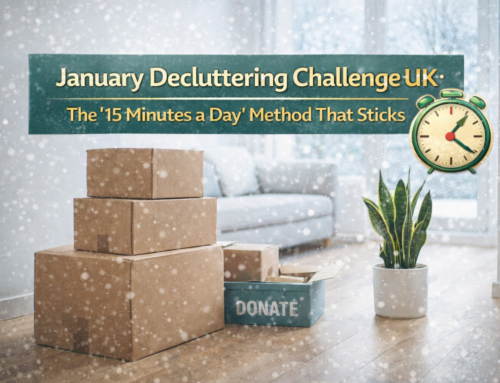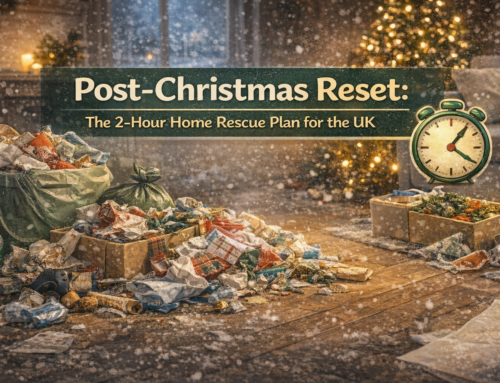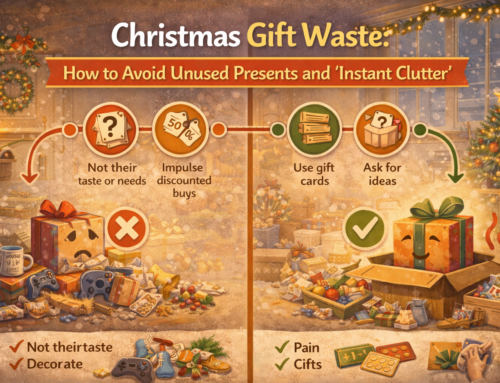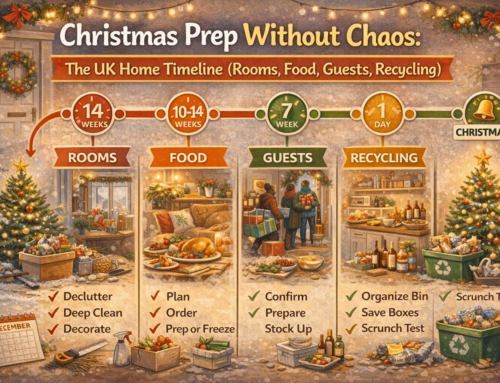House clearance can feel overwhelming, but knowing what to include matters. Professional clearance services in the UK handle everyday items like furniture and small appliances.
However, certain materials require extra care or alternative disposal methods.
Whether you’re clearing a home after a move or inheritance, this guide breaks down accepted and restricted items. Understanding these rules helps avoid delays and extra costs.
From electronics to hazardous waste, the right approach ensures smooth clearance.
Key Takeaways
- Professional clearance services prioritise safe disposal of common household items.
- Items like mattresses and clothing are typically accepted during standard house clearance.
- Hazardous materials, such as chemicals, must be handled separately by licensed providers.
- Electronics and large appliances may need prior checks for functionality or safety.
- Confidential documents should be securely disposed of outside standard clearance processes
Understanding House Clearance Services in the UK
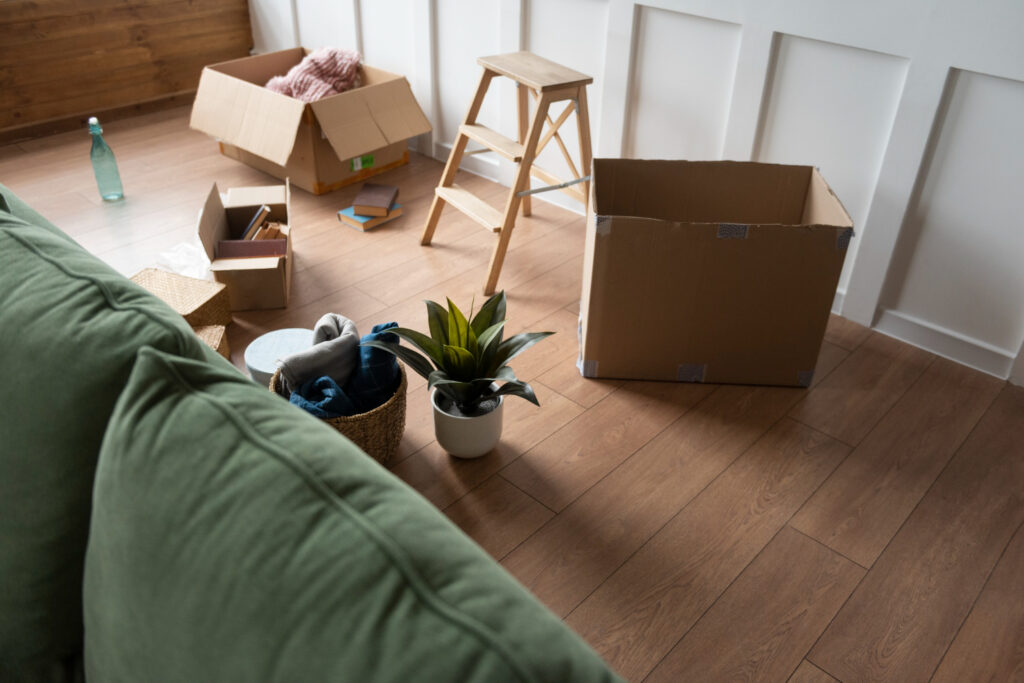
House clearance services in the UK make getting rid of unwanted items easier. They handle everything from furniture to appliances. Choosing the right service ensures items are disposed of properly and legally.
What Professional House Clearance Involves
Services include:
- Assessing the property to find items to remove or recycle
- Sorting items for reuse, donation, or safe disposal
- Dealing with hazardous waste like chemicals or electronics separately
- Providing documents for insurance or estate settlements
The Importance of Knowing Acceptable Items
Knowing what items are accepted helps avoid extra costs. For example, services may accept:
- Furniture and appliances in good condition
- Clothing and textiles for charity
Items like fridges need special disposal due to refrigerant gases. Not knowing this can lead to fines or penalties.
How House Clearance Differs from Office Clearance
Office clearance focuses on business items like IT and documents. House clearance deals with home items such as:
- Personal belongings and sentimental objects
- Large furniture and seasonal decorations
Office clearance includes data destruction and recycling. House clearance focuses on clearing space for moving or renovation. Prices vary based on items and property size.
Furniture: The Cornerstone of Any House Clearance
Furniture is key in house clearance. Knowing which items are accepted makes the process smoother. Most services take items like sofas, beds, and tables, regardless of condition. Even damaged furniture can be removed, but some services might have restrictions.
- Accepted items: Sofas, dining sets, dressers, bookshelves, and office chairs
- Condition notes: Minor wear is usually okay; severe damage may need special arrangements
Organising bulky item disposal is important. Break down large items like bed frames or tables. Keep hardware in labelled bags for easy reassembly later. Professional teams can disassemble complex pieces if needed.
Valuable or antique items need extra care. Check for maker’s marks, age indicators, or unique designs before clearance. Items like vintage dining suites or mid-century chairs might need separate valuation through specialist auctioneers or antiques dealers.
Providers are now focusing on sustainability. Many work with charities like British Heart Foundation or reuse networks. Eco-friendly options include wood recycling and mattress recycling schemes that recover steel springs and foam.
Electronics and Appliances: Guidelines for Disposal
Managing electronics and appliances during house clearance requires careful planning. Items can be reused, recycled, or disposed of legally. The condition and type of item determine how it should be handled.
Working Electronics: What Clearance Services Accept
Items like TVs, laptops, and kitchen appliances are often accepted during house clearance. Services look for items in good shape, like desktop computers or microwaves. These can be fixed or sold again. Check if they offer electronic waste disposal for these items.
Some companies even pick up big items like washing machines or ovens.
Handling Damaged or Non-Functional Appliances
Broken appliances can be tricky. Teams might not take items with obvious damage, like cracked screens. If parts can still be used, ask about appliance removal options.
Local recycling centres or charity shops might take items that can be fixed. Always tell the truth about any problems to avoid surprises.
Special Considerations for Refrigerators and Freezers
Refrigerators and freezers need special care before house clearance. They have harmful chemicals and insulation foam. Professionals must defrost and empty them.
Many places charge extra for these items because of environmental rules.
Hazardous Materials: What Most House Clearance Companies Won’t Take
House clearance teams often can’t take hazardous items. This is to keep workers and the environment safe. Knowing what’s not allowed helps your decluttering stay safe and legal.
Understanding Hazardous Waste Categories
Items like paints, chemicals, asbestos, and some electronics are hazardous. They can be dangerous if not handled right. Examples include:
- Expired pesticides or cleaning products
- Flammable liquids or oils
- Batteries (car, lithium, or lead-acid)
- Asbestos insulation or tiles
Alternative Disposal Options for Dangerous Items
Safe hazardous waste disposal needs special steps. Here’s what to do:
- Check your local council’s hazardous waste collection schedules.
- Use recycling centres certified for toxic materials.
- Return electronics with dangerous components to retailers under producer responsibility laws.
Legal Requirements for Hazardous Waste Removal
UK law requires proper disposal of hazardous waste. Homeowners could face fines or legal trouble if they don’t follow the rules. Always:
- Separate hazardous items before scheduling clearance
- Keep records of disposal receipts
- Avoid mixing waste types
Managing these materials properly lets clearance teams focus on safe, non-hazardous items. Plan ahead to avoid delays or penalties.
Books, Clothing and Personal Items: Decluttering Essentials
Sorting personal items like books, clothing, and everyday items is key before house clearance. Donating to charity is a top choice for reusable items. Many UK households donate clothes, but proper preparation is often overlooked.
- Books in good condition can be donated to libraries or secondhand shops like Book Aid International
- Clothing in wearable condition qualifies for clothing donation via Oxfam, British Heart Foundation, or local charities
- Broken toys or kitchenware should be separated for proper disposal
| Option | Clothing Donation | Personal Belongings Disposal |
| Acceptance criteria | Clean, undamaged items | Non-hazardous household items |
| Environmental impact | Reduces landfill use | Varies by local council guidelines |
| Value recovery | Charity shop resale | N/A |
Sorting Items Before House Clearance
Before you clear out your house, sort items into three piles: donate, keep, and dispose. You can donate clothes in any condition to recycling centres. Keep books that hold special memories.
Professional services charge £45-£70 an hour for the rest. Always check what charities accept, as some take more than just clothes.
Garden Equipment and Outdoor Furniture: What to Expect

Don’t forget about your outdoor spaces when clearing out. Garden waste removal and outdoor clearance need careful steps for safe disposal. Start by sorting items into categories.
Tools and machinery like lawnmowers need special care. Remove fuel, oil, and batteries before they’re taken away. Here’s how to prepare:
- Drain petrol from engines and dispose of it at recycling centres
- Store batteries separately for proper recycling
- Sharpen or clean blades to avoid damage during transport
Furniture and decor should be cleaned and taken apart if possible. Items in good shape might be reused. For example:
- Wooden planters can be donated to community gardens
- Stone ornaments are often accepted if free from hazardous coatings
- Broken glass items must be clearly marked and boxed
Chemicals and fertilisers need extra care. Most house clearance services avoid these. Contact local councils for disposal events handling:
- Insecticide sprays
- Old pesticide containers
- Concentrated fertiliser bags
Proper preparation ensures outdoor items are handled safely. Always confirm disposal policies with your service provider beforehand.
Valuable Items and Antiques: Special Considerations for House Clearance
House clearance often reveals hidden treasures. Antique furniture, vintage jewellery, or historic documents might be worth a lot. Professional valuers can spot items like silverware or ceramics.
- Research family heirlooms using online databases like the Victoria and Albert Museum’s object guide
- Contact auction houses such as Sotheby’s UK for pre-clearance appraisals
- Document items with photos and descriptions before clearance teams arrive
Reputable companies like Clearabee now handle valuable items carefully. Their teams can help you decide what to do with finds. Items like 19th-century porcelain or vintage wine collections need special storage.
Handling valuable items also involves legal steps. UK waste regulations require reporting items over £500 to clients before disposal. If you have unsorted contents, get a pre-inspection with a valuer to find hidden assets. Valuers often work with clearance providers to make the process smoother.
Documents and Confidential Materials: Protection and Proper Disposal
When clearing out your house, protect personal documents. Identity theft and legal problems can happen if sensitive materials are mishandled. Start by separating important documents from those ready for document disposal.
Identifying Important Documents to Keep
Make a list of documents to keep, like passports, birth certificates, tax returns, and medical records. Use this checklist to sort paperwork before clearance starts:
- Legal documents (deeds, wills)
- Financial records (bank statements, insurance policies)
- Identification (passports, driving licences)
- Medical histories
Secure Destruction Services for Sensitive Materials
For outdated or redundant documents, choose secure data destruction services. Professional shredding makes sure personal info can’t be recovered. Many clearance firms work with certified providers to:
- Shred paper records into unreadable fragments
- Provide certificates of destruction for compliance
- Dispose of documents in locked bins until processing
Digital Media and Data Storage Devices
Electronic devices like hard drives and smartphones need special care. Secure data destruction for digital items involves:
- Data wiping software for devices
- Physical destruction (e.g., crushing hard drives)
- Professional disposal of USB drives and SIM cards
| Document Type | Recommended Disposal Method |
| Bank Statements | Shredding via certified services |
| Medical Records | Secure disposal bins |
| Expired Passports | Government-registered destruction |
| Tax Returns (over 6 years old) | Professional shredding |
| Birth Certificates | Keep permanently |
| Utility Bills | Secure disposal |
| Employment Contracts | Confidential shredding |
| Insurance Policies (expired) | Destroy after retention period |
| Social Security Docs | Professional destruction |
| Property Deeds | Store securely, never dispose |
Building Materials and DIY Leftovers: Can They Be Cleared?
House clearance often includes leftover building materials from DIY projects or renovations. Many companies accept clean, non-hazardous items like timber, bricks, or tiles during standard services. But certain materials require special handling to comply with UK regulations.
Items typically accepted by house clearance teams include:
- Unpainted wood and offcuts
- Plasterboard in good condition
- Unused bags of cement or sand
- Flat-packed tiles and flooring samples
Construction waste like asbestos, oil-based paints, or chemicals must never be included. These hazardous items need licensed disposal through council-designated facilities. Building material disposal for hazardous waste should always involve certified contractors.
Don’t send these to standard clearance services:
- Lead paint or solvents
- Asbestos-containing materials
- Flammable adhesives
For reusable materials, consider donating in good condition items to platforms like Re-Use Network or local community projects. Many councils offer free bulky waste collections for non-hazardous leftovers. Partner with licensed waste carriers for items like fridges or gas cylinders, as required by the Waste Carriers and Brokers Act 2014.
Proper building material disposal reduces landfill impact. Contact your local council for recycling centre locations or search the Gov.uk website for authorised waste handlers. Always confirm with your house clearance provider’s specific policies before scheduling.
Conclusion: Planning Your Successful House Clearance
House clearance demands careful preparation to ensure everything is handled correctly. Start by sorting items into acceptable and restricted categories, like hazardous materials or oversized appliances. Review your chosen company’s policies to avoid last-minute surprises. A well-organised approach saves time and reduces stress.
Professional clearance planning helps simplify the process. Begin by listing items to discard, separating valuables or hazardous waste early. Reputable firms like Clearabee or Skip Hire UK provide clear guidelines on accepted items, ensuring compliance with UK regulations. Always confirm how they handle confidential documents or electronics to protect your privacy.
Office clearance follows similar principles but prioritises confidential files and IT equipment. Compare quotes from licensed providers, checking their environmental practices and disposal methods. Companies like WasteCare Group specialise in eco-friendly solutions, reducing landfill waste through recycling or responsible reuse.
Before signing a contract, ask about disposal methods and insurance coverage. A transparent company will explain fees upfront and clarify what they cannot collect, like gas cylinders or medical waste. This avoids hidden costs and ensures compliance with local waste laws.
Create a checklist based on the items covered earlier: furniture, electronics, and hazardous materials. Schedule services well in advance, especially during peak seasons. By aligning with professionals who prioritise clarity and sustainability, you ensure a smooth transition without compromising safety or the environment.


